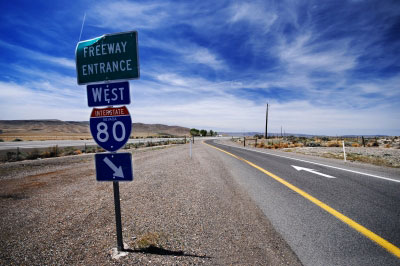Healthy eating on the road
Ten tips for a road trip or everyday commute.
As I sit here looking at my calendar of events for the next six weeks, I feel like I’ll be spending a lot of time in my car. A lot of nights will be spent in hotels and several days I will be out of my normal routine having many meals out at restaurants. I haven’t even left yet and my passenger seat has already been designated as the “food section” of my vehicle. Eating on the road can be challenging, expensive and unhealthy, but it doesn’t have to be. Following a few general rules can lessen the toll of all three. Michigan State University Extension recommends trying these tips the next time you have to travel:
for the next six weeks, I feel like I’ll be spending a lot of time in my car. A lot of nights will be spent in hotels and several days I will be out of my normal routine having many meals out at restaurants. I haven’t even left yet and my passenger seat has already been designated as the “food section” of my vehicle. Eating on the road can be challenging, expensive and unhealthy, but it doesn’t have to be. Following a few general rules can lessen the toll of all three. Michigan State University Extension recommends trying these tips the next time you have to travel:
1. Plan ahead - Pack snacks and meals, if appropriate, at home before leaving on your trip. This way you’re more likely to bring foods that you normally eat and they are healthier than restaurants or fast food.
2. Avoid fats and sugars - Cut up fresh fruits and vegetables before leaving and put them in easy to handle containers in a cooler. You can also try making your own trail mix with nuts and dried fruit.
3. Don’t forget protein - Protein is important to help prevent energy lags and help you concentrate on the road. Beef jerky is a great travel snack high in protein. Just beware of the high sodium content! Crackers with hummus or a peanut butter sandwich work well too.
4. Avoid gas station food - Gas stations are convenient stops, but rarely carry many healthy options. You’ll be more likely to grab a candybar or bag of chips than an apple. If you need to stop to buy food, find a grocery store and look for healthier options.
5. Find alternatives to fast food - Fast food restaurants are quick and easy, but often leave you feeling tired, sluggish and bloated. If you must eat fast food, get something grilled instead of fried and don’t super-size it. If you have options other than fast food, look for a sandwich shop or deli and choose something with fresh vegetables or whole grain bread.
6. Get a hotel with a fridge - Hotels offer rooms with mini-fridges, often at no extra cost. If you have a fridge you can bring snacks and meals from home and eat them for the duration of your trip. For example, you can bring milk for breakfast cereal, cheesesticks for snacks or store leftovers from dinner to eat later.
7. Choose soups/salads - When eating out on the road you may be tempted to indulge in foods you can’t normally get where you live, but this might result in over-eating and feeling miserable. It’s okay to visit your favorite on-the-road restaurants, but try to choose items from the lighter fare menu or have soup and salad. You could also split a meal with your dinner partner.
8. Drink plenty of water - Travel can really dehydrate your body. Water is your best defense against this. Other beverages, including some flavored waters, contain sugar which slows the hydration process and can cause spikes in blood sugar. Try adding a little fresh lemon or lime to your water for flavor. Bring your own containers of water from home to avoid having to buy bottled water. Also avoid alcoholas it further dehydrates your body.
9. Try to exercise - Being cramped up in a car for hours on end can feel like origami on your muscles. Make a point when you stop to stretch, do some jumping jacks or take a walk around the parking lot. Bring a pair of athletic shoes and utilize hotel workout accomodations to refresh your muscles.
10. Get plenty of sleep - It’s often hard to get good rest on the road due to long hours of driving, meetings and hotel room conditions. Try to keep your bedtime routine as normal as it is at home as possible. Avoid staying out later than usual and allow for downtime in your room each night. Bring a pillow or blanket from home to make yourself more comfortable.



 Print
Print Email
Email